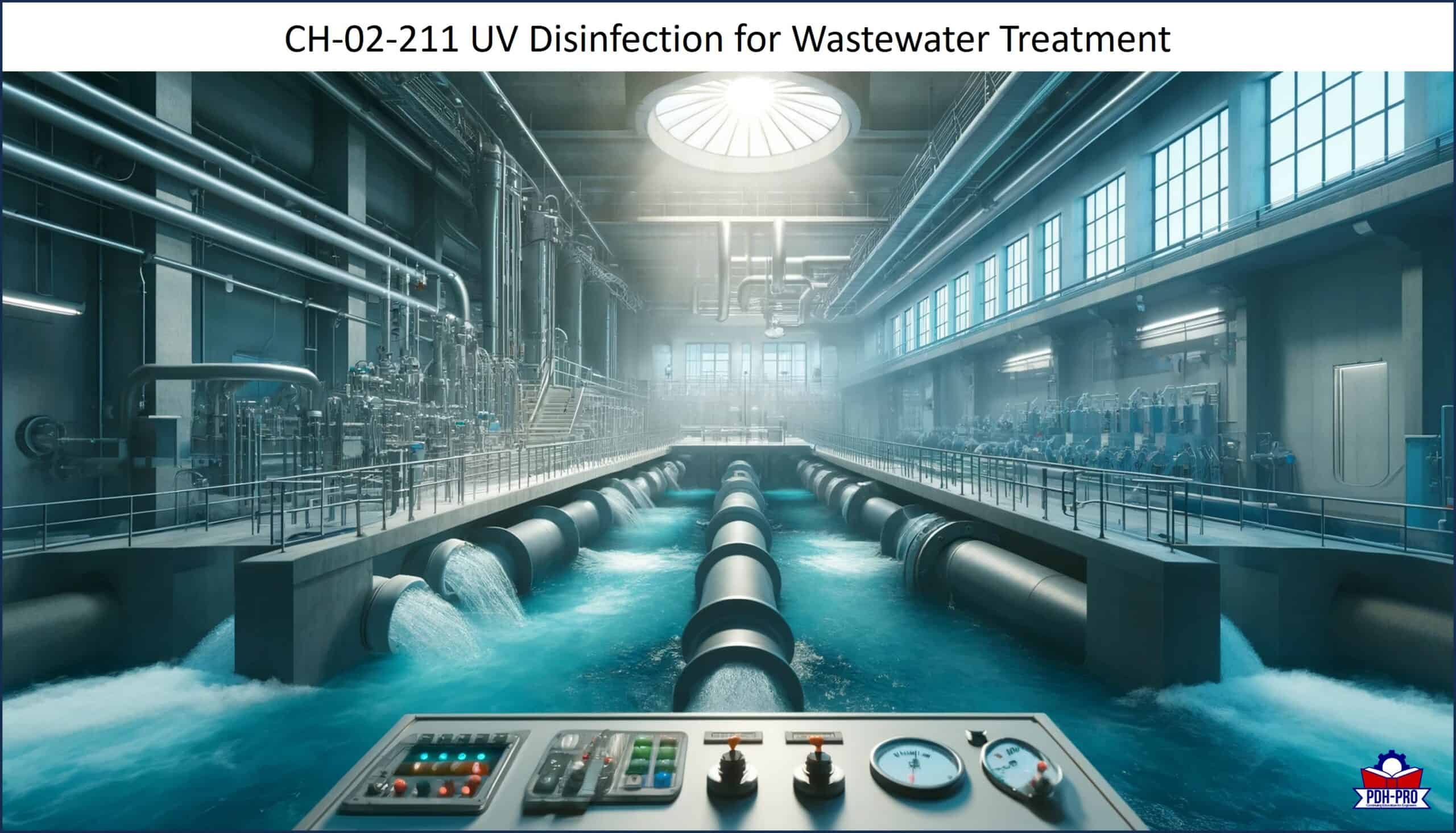
UV Disinfection for Wastewater Treatment
This course presents the results of a study that was conducted to determine the long-term benefits and costs associated with three different ultraviolet radiation (UV) disinfection alternatives with respect to chlorination/dechlorination. Chlorination has been the preferred disinfection method used for treating WWTP effluent, but concerns about worker and public safety and the potential for chlorinated effluent to be toxic to aquatic life have called its use into question. As a result, regulatory agencies are adopting stringent chlorine residual effluent limitations, and require risk management plans for bulk storage of chlorine gas or stringent storage and handling requirements for sodium hypochlorite. More stringent chlorine residual discharge limits will require implementation of dechlorination or an alternative disinfection technology.
Although chlorine, sometimes followed by dechlorination, continues to be used at most municipal WWTPs, use of other means, such as UV disinfection, is increasing. UV is a technology capable of providing effective WWTP effluent disinfection while reducing safety and environmental toxicity issues. Oftentimes, UV disinfection equipment are readily retrofit into existing WWTP chlorine contact chambers, which helps reduce capital costs. However, a host of other issues must be carefully considered to verify that UV facilities are safe, reliable and economical. These issues include the cost of power and lamp replacement, lamp fouling, ability of the water to allow transmission of UV radiation, tailing, photoreactivation and regrowth of disinfected microorganisms, and dose selection. Wastewater treatment professionals understandably are cautious regarding implementation of new processes and require independently obtained treatability data before process changes will be considered.
Learning Objectives
This course is intended to provide you with the following specific knowledge and skills:
- Chlorine disinfection issues
- Ultraviolet (UV) radiation disinfection
- Alternative UV disinfection technologies
- Factors that affect UV disinfection
- Costs of various UV and chlorine disinfection processes
Download the Course to review and begin earning your PDH credits.
We provide technical courses for PDH credits that meet Board requirements for Professional Engineers, Geologists and Land Surveyors. This courses is guaranteed to be accepted in AK, AL, AR, GA, IA, IL, ID, IN, KS, KY, MD, ME, MI, MN, MO, MS, MT, NC, ND, NE, NH, NJ, NM, NV, OH, OK, OR, PA, SC, SD, TN, TX, UT, VA, VT, WI, WV, and WY. Before purchasing this course, please confirm that your state Board is listed above.
